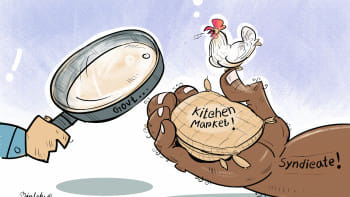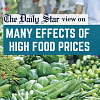Are we overlooking the new poor?

It is worrying to see the plight of the new poor in Dhaka and elsewhere amid the continued fallout of the Covid-19 pandemic and Russia-Ukraine war. In Dhaka, according to a new survey by the Bangladesh Institute of Development Studies (BIDS), 22.24 percent of the city's population were poor in 2022, and about 51 percent of those were "new poor". This was based on an assessment of the financial situation of 2,046 households. What's interesting is that the new poor now form the majority of those placed in the poverty bracket in Dhaka even though, over all, the number of poor people fell by 4.3 percentage points from 26.54 percent.
This means the new poor, a social category created by the pandemic, are not getting the policy attention they deserve. These people once belonged to the lower middle class but turned poor in the wake of the pandemic and have not recovered from it since. This is despite the increase in the average income of the poor post-pandemic. Clearly, any rise in their income level hasn't been proportionate with the insanely highly cost of living, with the poor now having to use most of their income and savings to pay for food and other essentials. As the state minister for industries has rightly said, ordinary people cannot help but "cry" when visiting markets because they don't have sufficient money to pay for basic necessities.
Against this backdrop, there is no justification for gloating over the relative decline in poverty when it has neither brought relief to poor households nor reduced the yawning rich-poor income gap. The question is, how long before our policymakers address the changing reality of poverty, particularly the plight of the new poor who are deprived of government schemes for the poor? As well as ensuring support to increase their income, addressing their plight in the upcoming budget and bringing down food prices by reining in unscrupulous syndicates, the government needs to regularly update its lists of beneficiaries for social safety net programmes so that all deserving ones are included. It also needs to stop the culture of increasing the tax-tariff burden on the poor, and shift it more onto the rich.
There is no denying that Bangladesh is going through a crippling cost-of-living crisis, and the poor and new poor are suffering the most because of it. We need proper governance and pro-poor reforms to ride out this crisis.


 For all latest news, follow The Daily Star's Google News channel.
For all latest news, follow The Daily Star's Google News channel. 








Comments